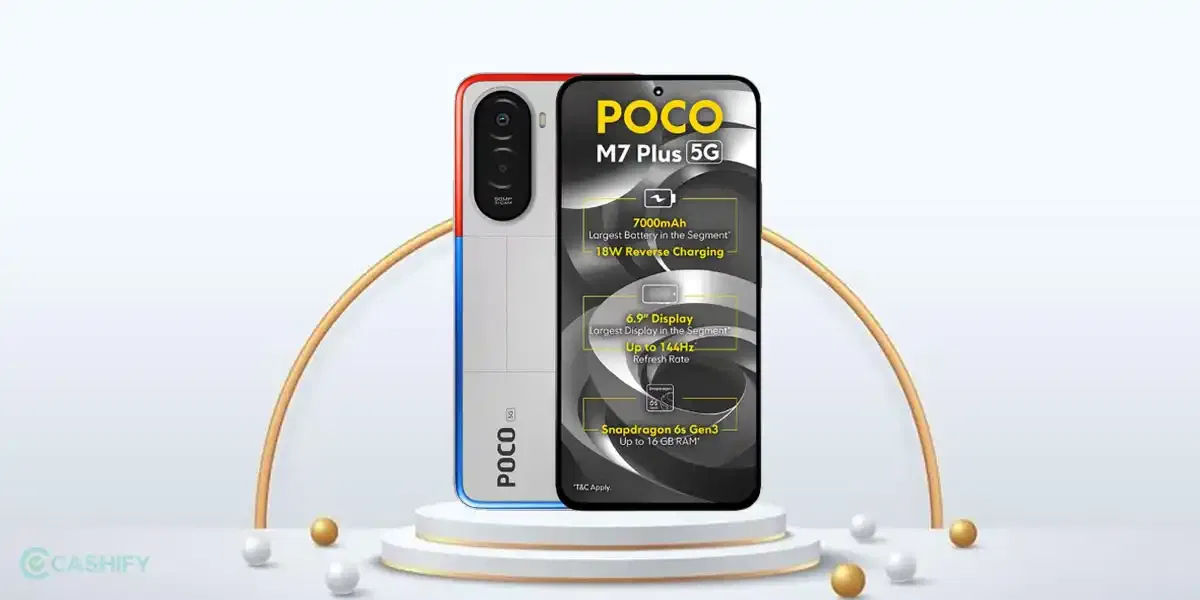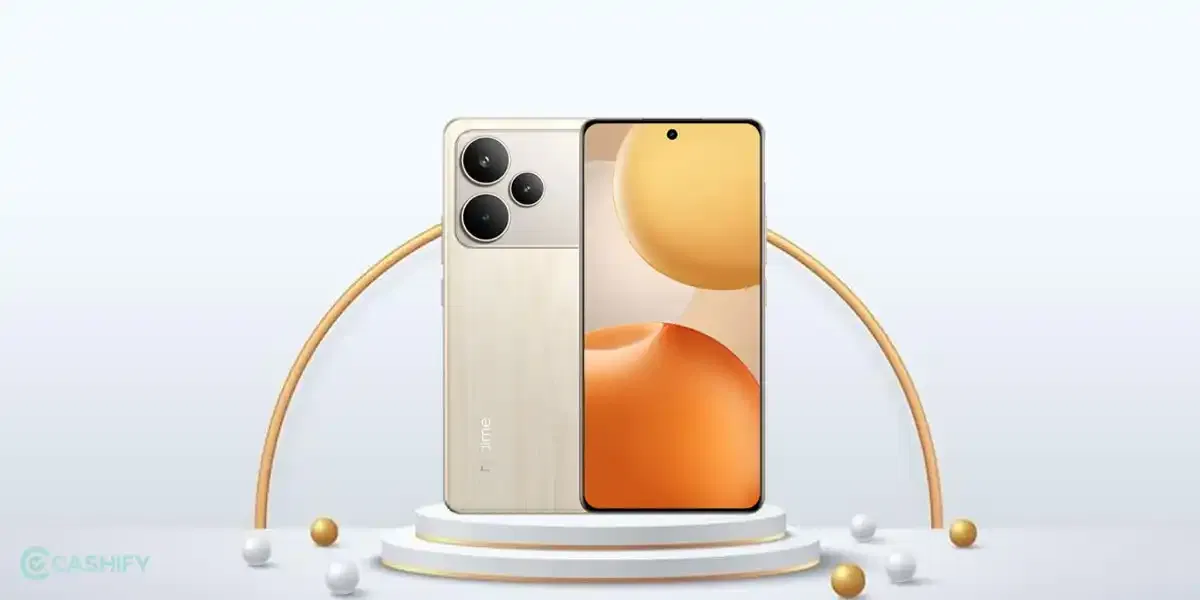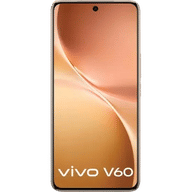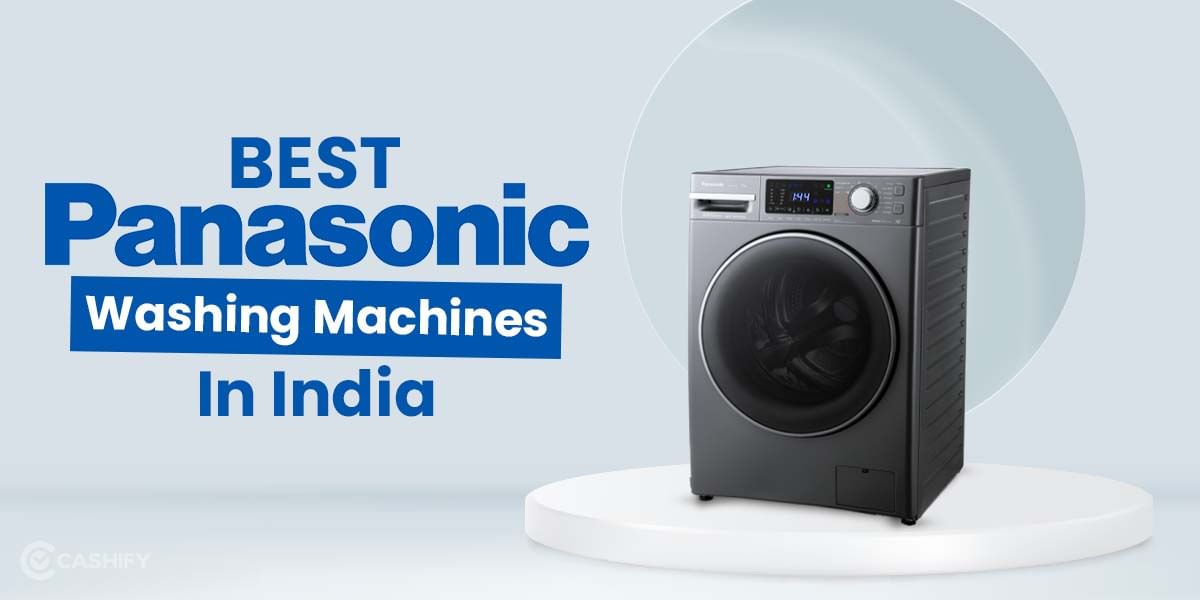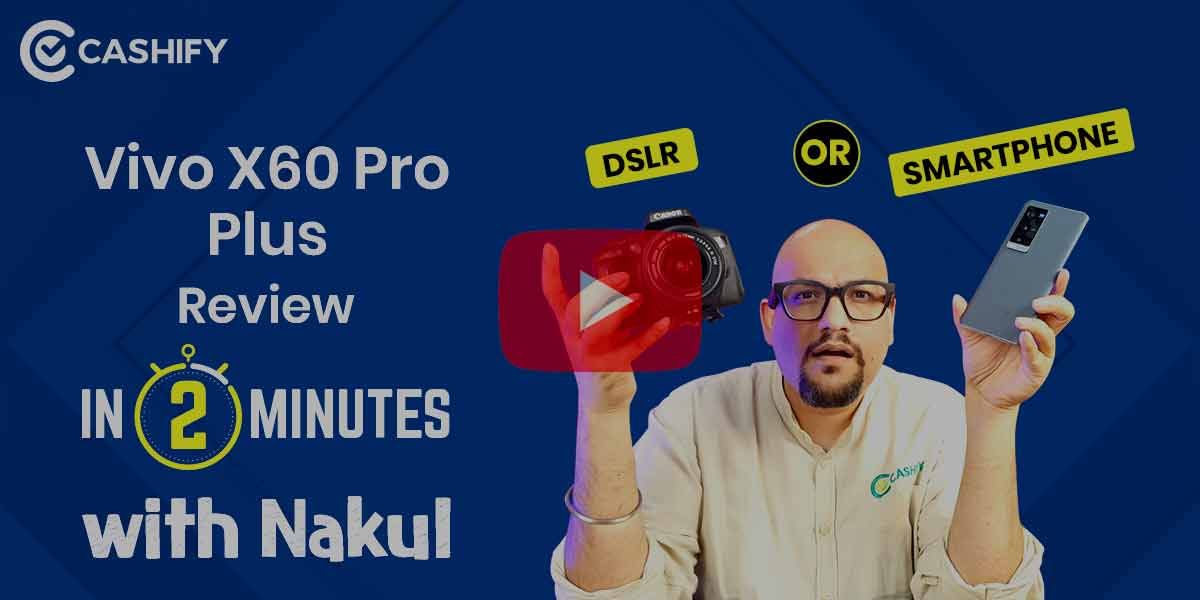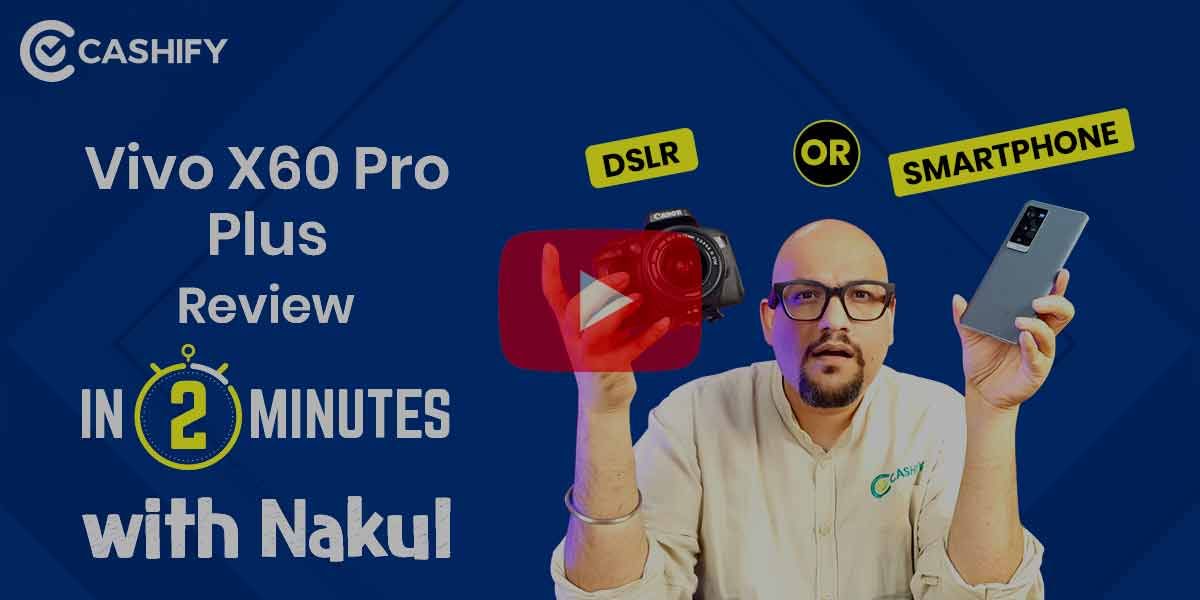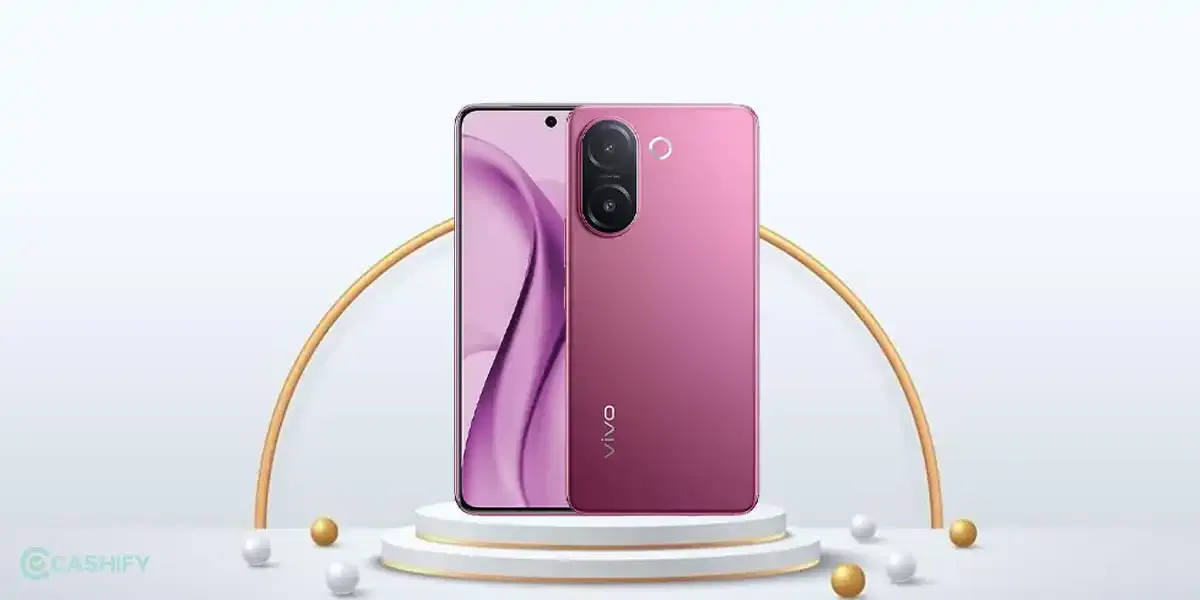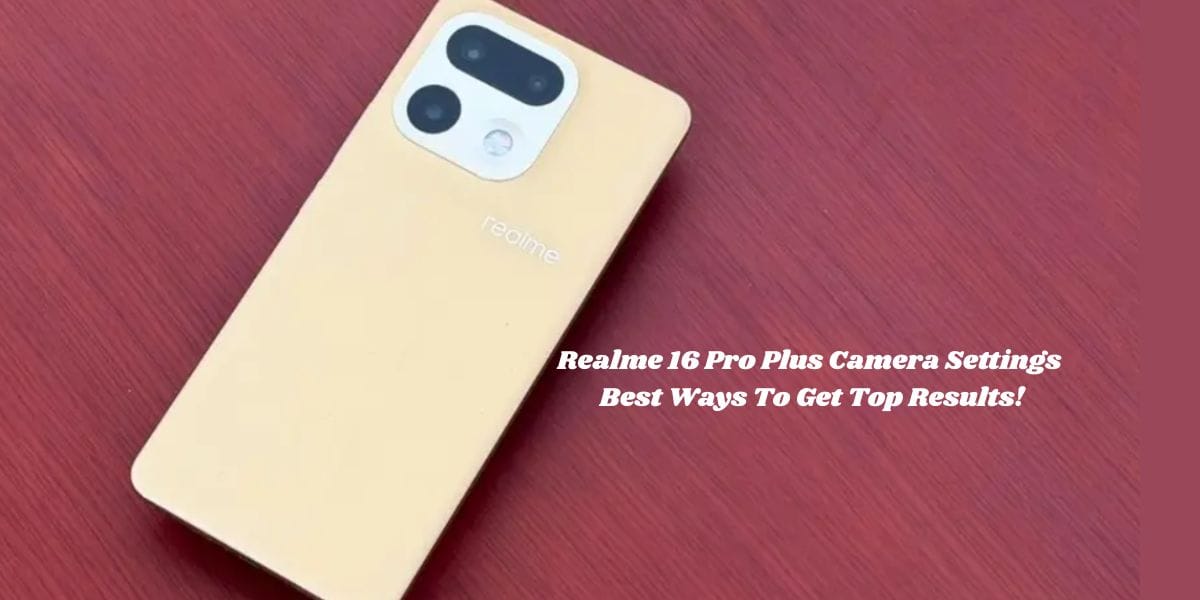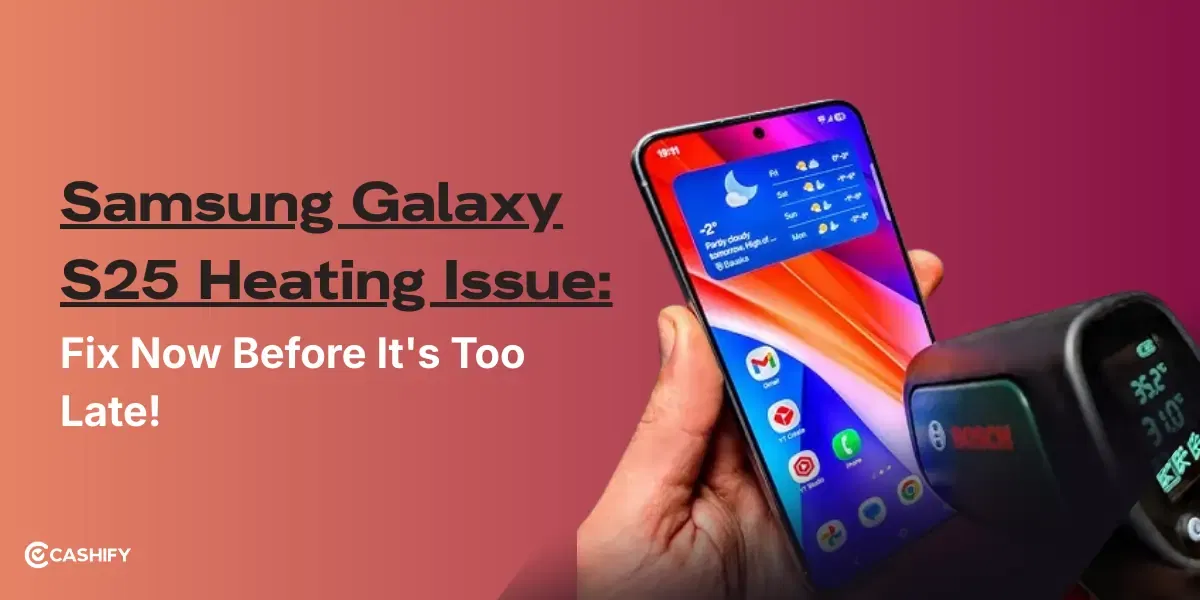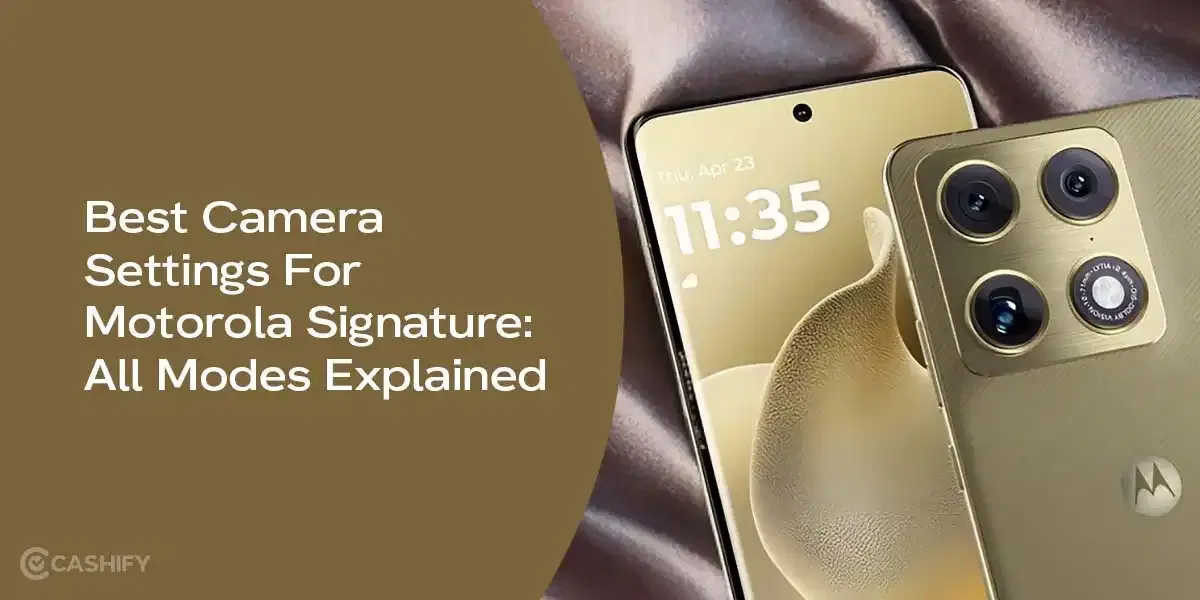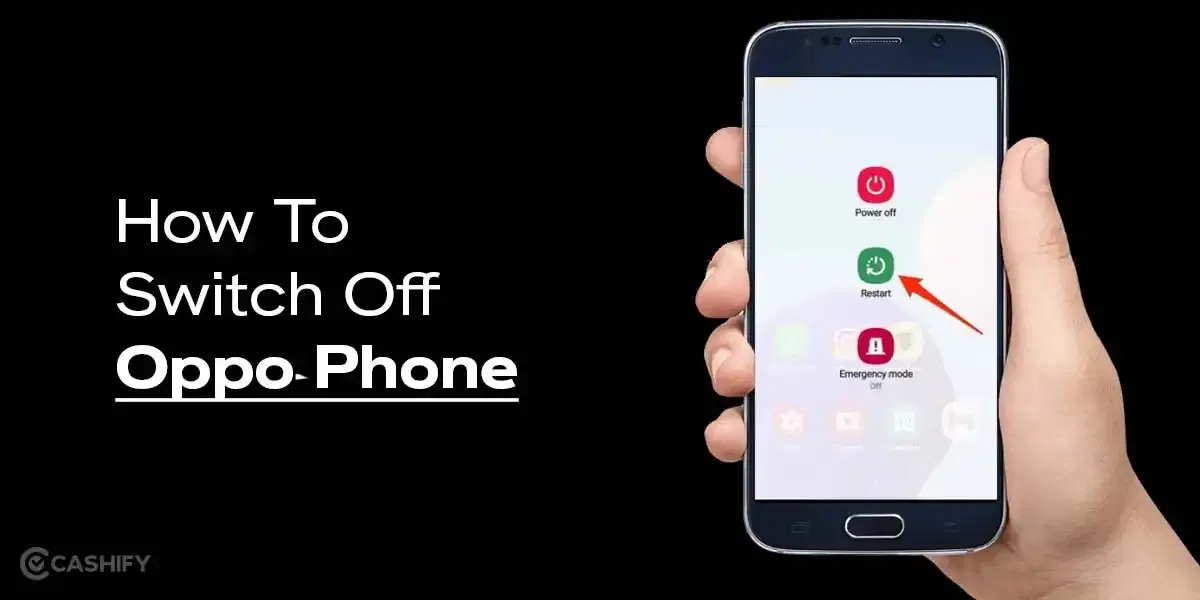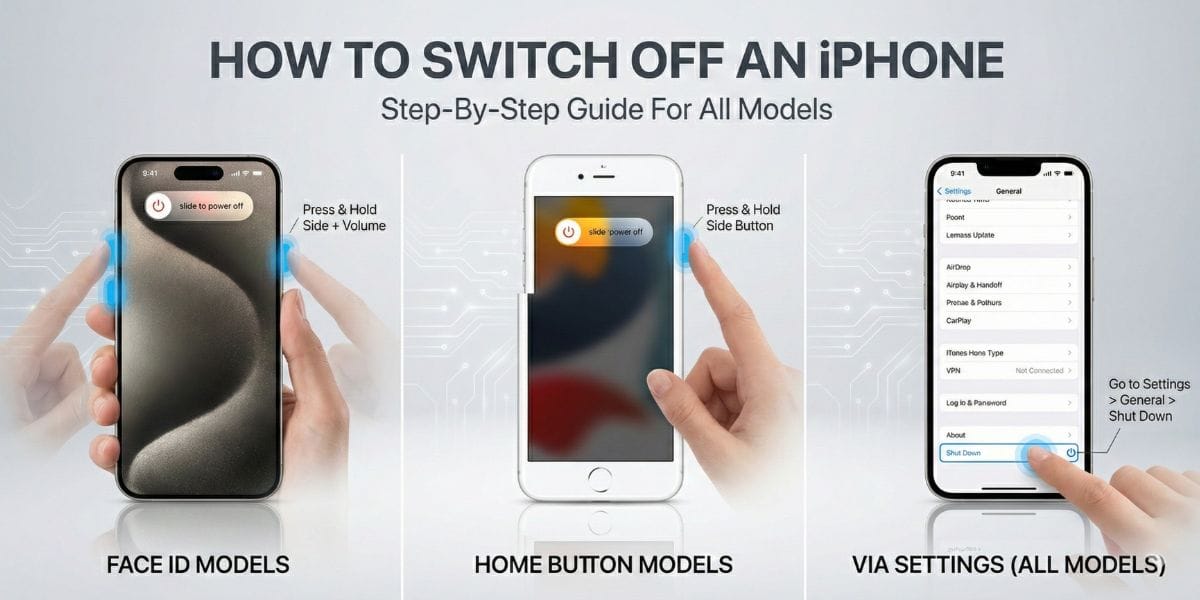Vivo V60 Price in India and Variants
The Vivo V60 is priced at ₹36,999 for the model with 8GB of RAM and 128GB of storage. It other models cost ₹38,999 for the 8GB memory and 256GB storage version, ₹40,999 for the 12GB memory with 256GB storage, and ₹45,999 for the high-end model that offers 12GB of memory and 512GB of storage.
 This phone is available in three stylish colours: Mist Grey, Moonlit Blue, and Auspicious Gold. You can purchase the Vivo V60 through Vivo’s website, Amazon, Flipkart, and in-store.
This phone is available in three stylish colours: Mist Grey, Moonlit Blue, and Auspicious Gold. You can purchase the Vivo V60 through Vivo’s website, Amazon, Flipkart, and in-store.
Also Read: POCO M7 Plus 5G Review: Affordable Phone With Massive Battery Life
Vivo V60 Box Contents
The Vivo V60 packs the following items inside the box:

- Phone
- 90W Charger
- Type C cable
- SIM ejector tool
- Protective cover
- Documentation
Vivo V60 Specs at a glance
Before we talk in detail about the Vivo V60, let’s see what the on-paper specs look like:

- Display: 6.77-inch AMOLED screen
- Chipset: Qualcomm SM7750-AB Snapdragon 7 Gen 4 (4 nm)
- RAM & ROM: 128GB 8GB RAM, 256GB 8GB RAM, 256GB 12GB RAM, 512GB 12GB RAM, 512GB 16GB RAM
- Software: Android 15, Funtouch OS 15
- Rear camera: 50MP, 50MP, 8MP
- Selfie camera: 50MP
- Battery: 6,500mAh
- Weight: 192 grams
- Dimensions: 163.5 x 77 x 7.5 mm
Vivo V60 Design and Build
The Vivo V60 offers a premium design, and there is no phone with a cleaner, silkier and more amazing finish like this one. You can hold this phone perfectly in your hand due to its quad-curve design, which helps it feel more comfortable and gives it a luxurious feel.

Its camera design on the back does not look awkward, but using it without a cover will be a wiser decision because the camera bumps can be damaged or scratched.
 Its back does not attract fingerprints, and water spills will not stay on it. I’m using the golden colour, which is more beautiful than the blue.
Its back does not attract fingerprints, and water spills will not stay on it. I’m using the golden colour, which is more beautiful than the blue.
 Moving on to its port placement, the top of the phone has an IR blaster, a microphone, and a secondary speaker. Its right side has a power and volume button, while the bottom contains a Type-C jack, SIM tray, speaker grille, and a microphone
Moving on to its port placement, the top of the phone has an IR blaster, a microphone, and a secondary speaker. Its right side has a power and volume button, while the bottom contains a Type-C jack, SIM tray, speaker grille, and a microphone Its body dimensions are 163.5 x 77 x 7.8 mm, and it weighs approximately 192 grams. This phone has an IP68/IP69 dust-tight and water-resistant rating, allowing it to withstand high-pressure water jets and be immersed up to 1.5 metres for 120 minutes. Overall, the Vivo V60 design review is over the top, and its in-hand feeling is amazing.
Its body dimensions are 163.5 x 77 x 7.8 mm, and it weighs approximately 192 grams. This phone has an IP68/IP69 dust-tight and water-resistant rating, allowing it to withstand high-pressure water jets and be immersed up to 1.5 metres for 120 minutes. Overall, the Vivo V60 design review is over the top, and its in-hand feeling is amazing.
Vivo V60 Camera
The Vivo V60 is unbeatable in the camera segment; there is no prominent phone that offers such camera quality within its price range.

I took numerous images in various environments and modes. You can see my sample image, which was captured more precisely.
 I love the Vivo V60’s camera performance. ZEISS powers its 50MP main and periscope telephoto lenses. It delivers sharp, detailed images with a 3× optical zoom and produces clean shots even at 10× digital zoom. Daylight photos look crisp and vivid.
I love the Vivo V60’s camera performance. ZEISS powers its 50MP main and periscope telephoto lenses. It delivers sharp, detailed images with a 3× optical zoom and produces clean shots even at 10× digital zoom. Daylight photos look crisp and vivid.
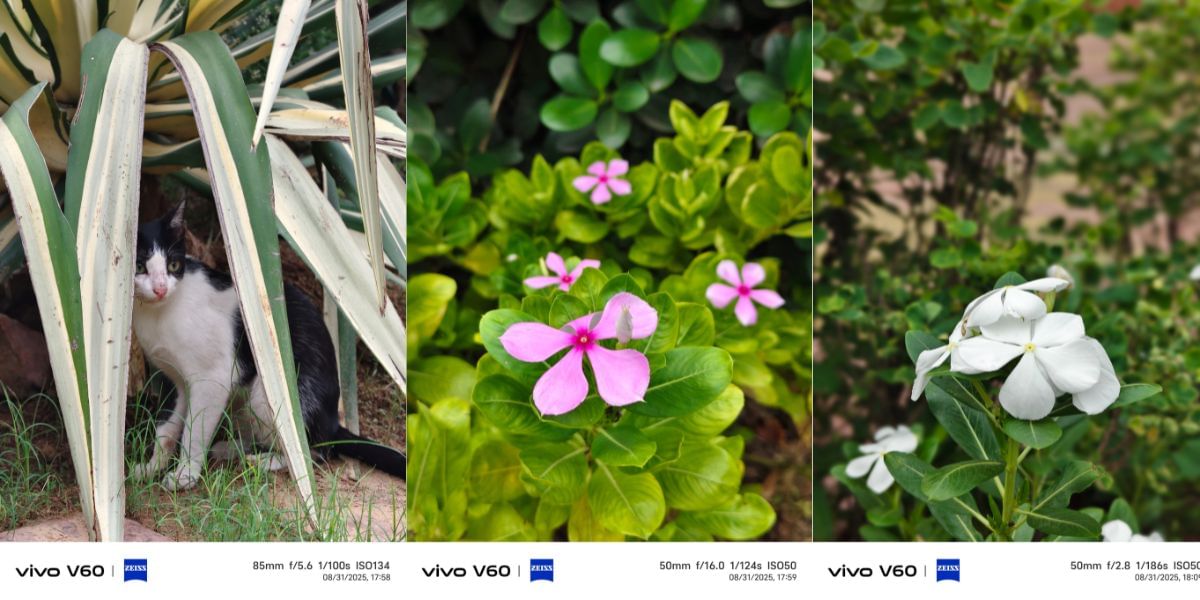 Portrait mode offers smooth skin tones, precise edge detection, and the classic ZEISS bokeh effect. You can see my images where the edges are perfectly defined.
Portrait mode offers smooth skin tones, precise edge detection, and the classic ZEISS bokeh effect. You can see my images where the edges are perfectly defined.

The ultrawide camera has a resolution of just 8MP. It performs well for landscape shots but lacks detail in low-light conditions. The field of view isn’t wide enough for immersive wide-angle captures.
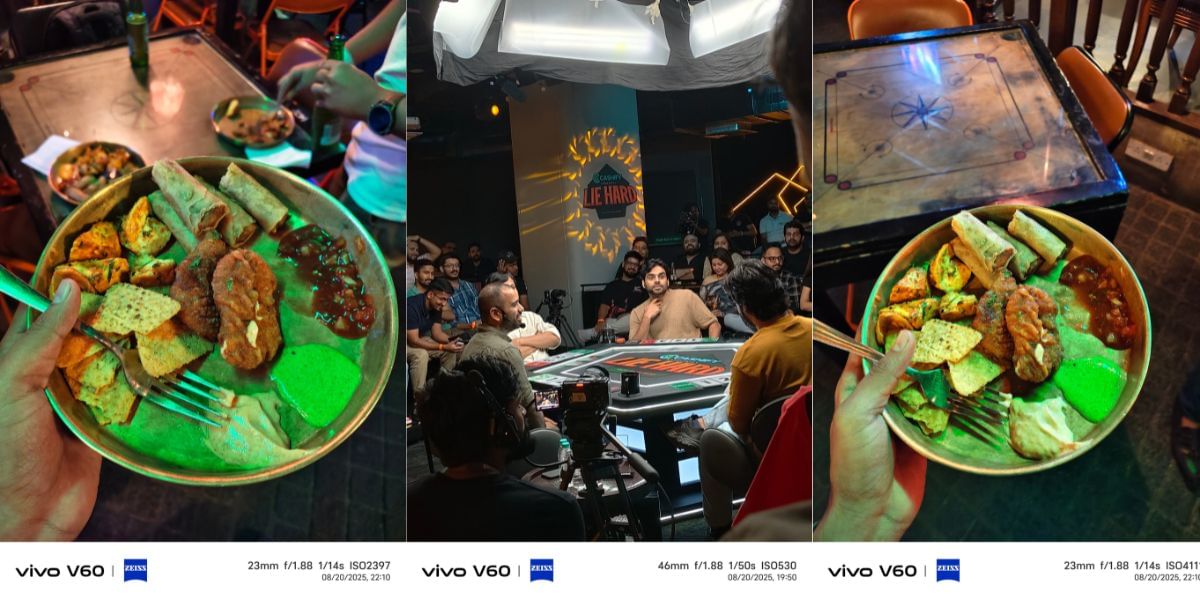
The front camera also impresses. It captures clear, sharp selfies. You can see some of the selfies, but I sometimes feel that the ISO was increased during image capture.
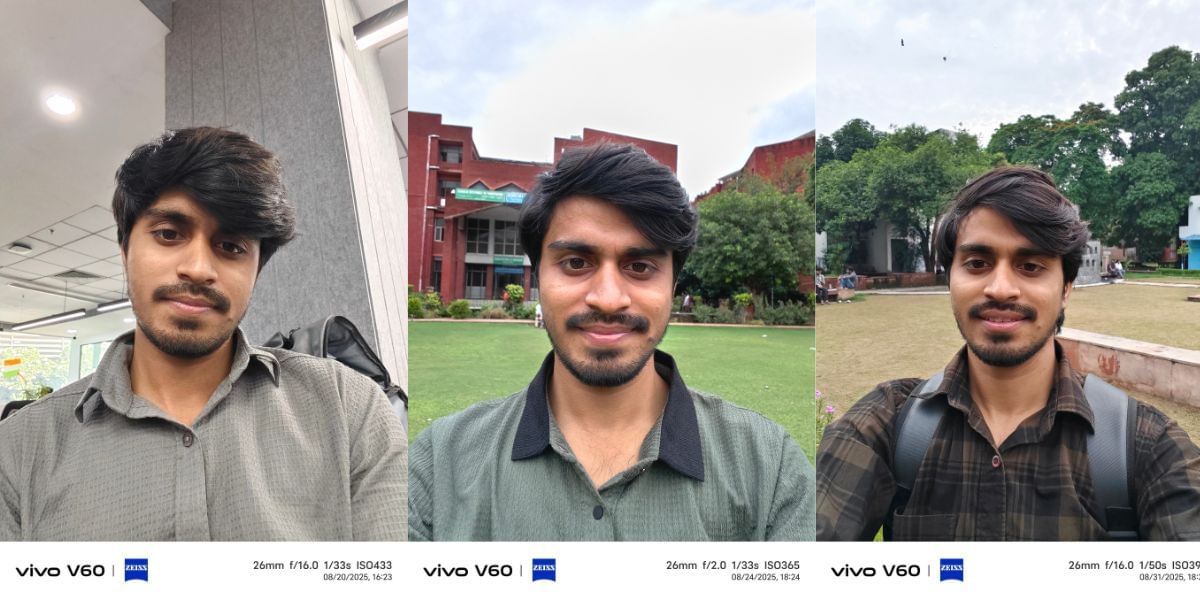
You can shoot in 4K, which is great for vlogs and video calls. Despite its strengths, the phone enhances AI sharpening at high zoom levels. This adjustment sometimes softens details.
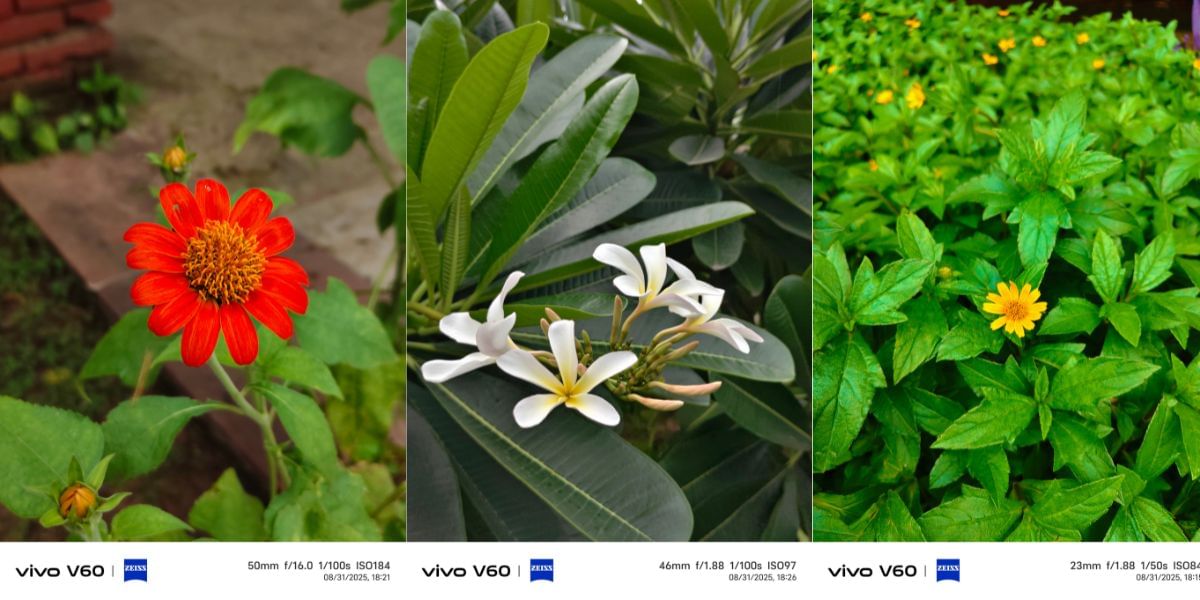
Overall, the Vivo V60 excels at capturing portraits and telephoto shots. It scores highly in daylight and selfie quality. It falls short on the ultra-wide front.
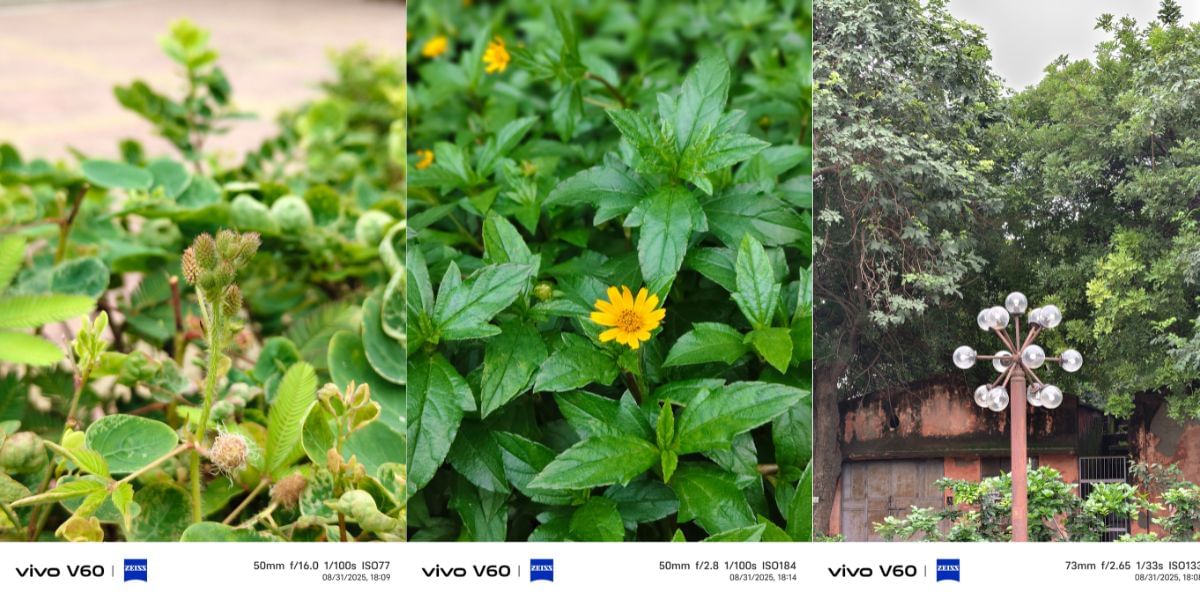
If you prioritise portrait and zoom versatility, this camera setup performs brilliantly. There is no major question in the Vivo V60 camera review because of its results.
Vivo V60 Battery and Charging
The Vivo V60 has a 6,500mAh battery capacity, which is adequate for daily use. I used this phone for social media, watching movies, and playing BGMI as well. If you are not playing games, you typically get around 11 to 12 hours of screen time.
 However, after playing BGMI or other battle royale games, you only get 6-7 hours of screen time. So, you can use it for 20 to 21 hours on a single charge.
However, after playing BGMI or other battle royale games, you only get 6-7 hours of screen time. So, you can use it for 20 to 21 hours on a single charge.
 This phone comes with a 90W fast charger. I charged it from zero to 100 per cent in just 52 minutes, and this is a normal time for any phone. One thing to note is that it will heat up during charging, which is a positive aspect. Vivo V60 battery review is also fantastic.
This phone comes with a 90W fast charger. I charged it from zero to 100 per cent in just 52 minutes, and this is a normal time for any phone. One thing to note is that it will heat up during charging, which is a positive aspect. Vivo V60 battery review is also fantastic.
Vivo V60 Display
The Vivo V60 features an impressive display with an AMOLED screen, offering a fantastic experience when consuming content in its original colours. I watched a darker-themed movie to check its deep black display and its accuracy. Moreover, it supports HDR10+, allowing me to watch high-quality content on YouTube and Amazon Prime.

You can opt for a 120Hz refresh rate to provide a smooth experience, but you can adjust it from the settings if you prefer to slow down your display scrolling. Moreover, I used it in harsh sunlight, and its display was evident due to its 5000 nits peak brightness.

This phone features a screen that utilises Schott Xensation Core for protection, rather than Corning’s Gorilla Glass. What is the difference between the two? Both are strong and tough glasses designed to resist damage, but they focus on different things.

Gorilla Glass is very good at resisting scratches, while Xensation Core is better at not breaking. This makes Xensation Core very durable, which is especially useful for devices like smartwatches that need thin but strong glass.

A few features are also available, such as eye protection, which dims the light with a yellowish hue. Dark mode is also available, and you can choose it according to your preference. One of the essential features is visual enhancement, which optimises the colour and contrast of some pictures for a more vivid display effect, but it will consume more battery.
Vivo V60 Performance
The Vivo V60 is equipped with a Qualcomm Snapdragon 7 Gen 4 chipset, capable of handling daily tasks and offering an ideal experience for gamers. Vivo has also used the Qualcomm Snapdragon 7 Gen 3 chipset in the last three models of the V series, including the Vivo V30, Vivo V40, and Vivo V50. Now, they have added a Gen 4 chipset in the Vivo V60.

I reviewed the Vivo V50 a month ago, and I have noticed improvements in several areas, including design, display, camera features, and battery life; however, performance remains unchanged. There is no lag during daily use, but you can’t run BGMI or other battle royale games on this phone. I personally experienced game freezes during hot drops or when the circle closes in BGMI, and sometimes I felt frustrated while gaming. What’s the point of spending 40K on a phone if you can’t enjoy gaming?
One of the drawbacks of this phone is that it still uses UFS 2.2 storage, rather than the faster UFS 3.2 or 4.0. The newer versions load apps quicker, transfer files at higher speeds, and handle gaming and multitasking more efficiently. I don’t know why Vivo is still using older technology when next-generation options are already available. One thing I can add is that there is no heating at all.
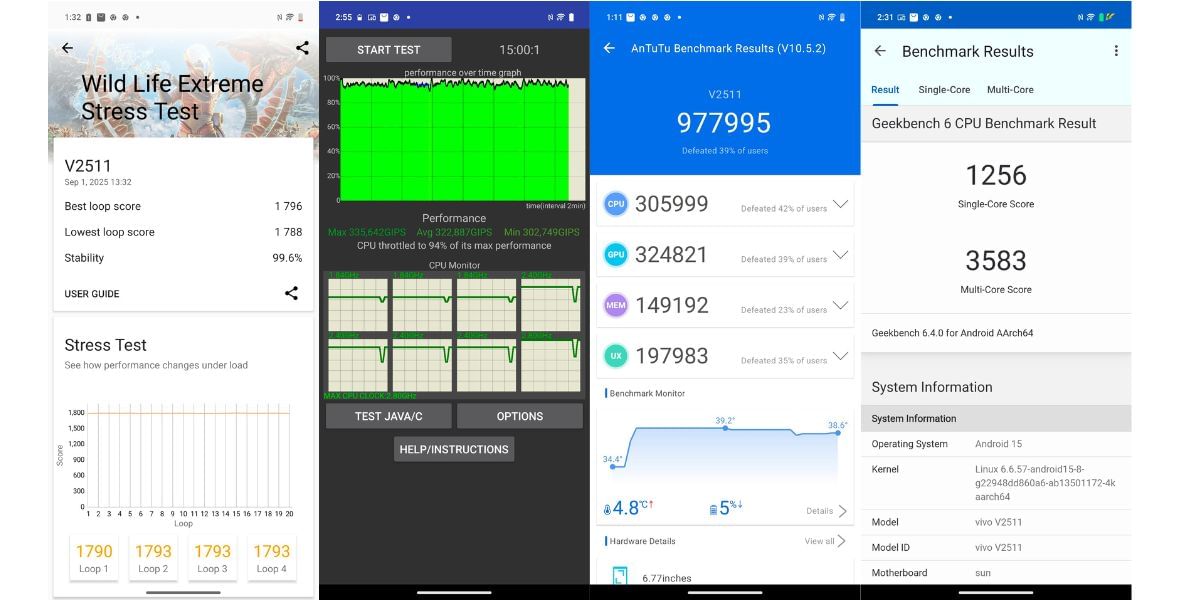
I conducted several Benchmark tests on the Vivo V60 to evaluate its accurate performance in various aspects. Its Geekbench CPU scores are 1256 in single-core and 3583 in multi-core. The maximum in the CPU throttling test is 94%. Moreover, its Antutu score is 977995. The 3DMark Wildlife Extreme Stress Test for stability has an overall score of 99.6%. So, the Vivo V60 performance review is quite decent.
Vivo V60 Software and UI
The Vivo V60 comes with Android 15, based on Funtouch OS 15, offering a smooth, clean, and animated UI. One of the best things is that it promises four years of major Android operating system upgrades and six years of security updates, starting with Android 15 and Funtouch OS 15.

This commitment extends the software lifespan significantly compared to previous V-series devices, ensuring long-term performance and security for users.

There is no unnecessary bloatware on the phone; a few are present, such as Vivo apps, but you can disable them from settings. I liked the app animations and widgets of Funtouch OS. You can customise the app widgets and UIs.

The Vivo V60 packs some smart AI tricks that actually make a difference in daily use. I enjoyed the AI Four-Season Portrait, which lets me switch a portrait into spring, summer, autumn, or winter vibes with natural-looking effects.

The AI Image Expander came in handy when I framed a shot too tight; it rebuilt the missing edges and gave me a perfect photo for social media. I also liked the AI Erase and Reflection Removal, which removed random people and light glares in seconds.
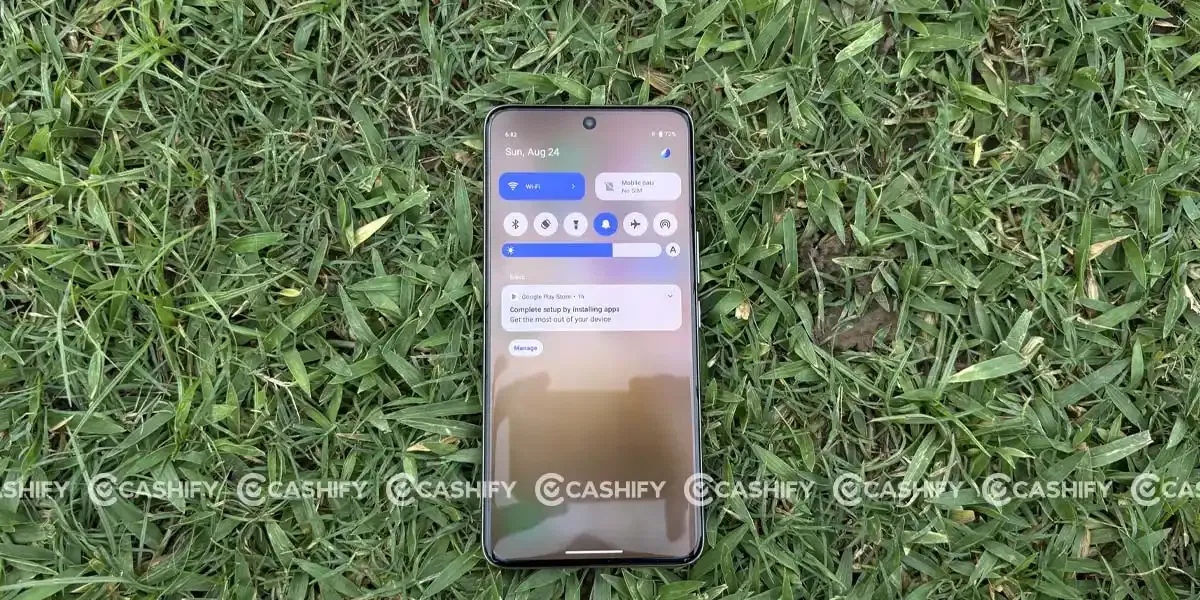
The AI Magic Move feature impressed me the most. It let me shift the subject in my photo, and the AI rebuilt the background as if nothing had changed. Additionally, the AI Super Telephoto and Photo Enhance features sharpened far-away zoom shots and even improved older, lower-quality pictures. Vivo clearly focused on making AI more than just a buzzword here; it feels practical and fun.
The Vivo V60 stands out with its slim design, vibrant display, and reliable cameras. I enjoyed the smooth performance in day-to-day use, though the UFS 2.2 storage feels outdated compared to UFS 3.2 or 4.0 options. If you are looking for a phone under ₹40,000 with excellent photography and a premium in-hand feel, this device makes sense. However, gamers might not find it ideal.
Overall, in my Vivo V60 Review, the phone excels in style and camera performance, but compromises slightly in storage speed and gaming performance. There are also a few phones, such as the Vivo T4 Pro, Realme GT 7, OnePlus 13R, Poco F7 and iQOO Neo 10, which you can view before making a purchase. I hope you liked my Vivo V60 review. Comment your thoughts below.


